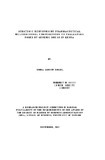| dc.description.abstract | Strategy relates a firm to its environment and it serves as a guide to the organization on what the organization is trying to do and achieve. Strategy provides an organization with a number of benefits as it provides an organization with better guidance, makes managers more alert to the winds of change, new opportunities and threatening developments.
Pharmaceutical Multinational Corporations (MNCs) have invested heavily in production and selling of quality products, they have spent valuable time and money to come up with differentiated products and they have challenges of recouping their investment by being profitable in the market. This has not been easy as they are facing steep competition from cheaper generic drugs, counterfeits and parallel imports. There is increasing threat from new generic entrants, threat of generic substitute products, bargaining power of generic suppliers/ distributors, bargaining power of cheaper generic brands as well as rivalry from generic industry members. Pharmaceutical MNCs have been able to withstand the test of times and are operating profitably.
The purpose of the study was to determine strategies employed by Pharmaceutical MNCs to fight challenges posed by competition from generic drugs. The study will be important to the Government as it will aid in informed future decision making as well as a more information data bank for investors, it will also avail information to Pharmaceutical MNCs to enable them make informed decisions, it will be useful to the generic pharmaceutical companies to enable them run competitively in the market place, it will enable pharmaceutical outlets (chemists) have more information on the general competitive strategy deployed in the pharmaceutical industry. The study is important to
v
the academia for a clearer insight of the pharmaceutical industry as well as propulsion for further research.
A sample survey design was used to ascertain various competitive strategies used by Pharmaceutical MNCs against the challenges posed by generic drugs. The research was designed to find competitive strategies Pharmaceutical MNCs have used against generic drugs in order to have a competitive edge in the market. The sampling units were Pharmaceutical MNCs retail outlets which were selected using systematic random sampling method. Primary data was collected through the use of a structured questionnaire.
The study shows that Pharmaceutical MNCs have employed various strategies to fight challenges posed by competition from generic drugs. Pharmaceutical MNCs have employed strategies against Michael Porters’ five forces influencing competition in an industry, namely; threat of new entrants, the threat of substitute products or services, the bargaining power of suppliers, the bargaining power of buyers, and the competitive rivalry between current members of the industry.
The study generalized strategies employed by pharmaceutical MNCs as a whole, it did not specify specific strategies for a specific pharmaceutical MNC, and therefore further research is recommended to be done on strategies employed by any specific Pharmaceutical MNC to fight challenges posed by competition from generic drugs. It is also recommended for research to be done on the strategies employed by generic industry members to challenges posed by competition from Pharmaceutical MNCs. | en |

